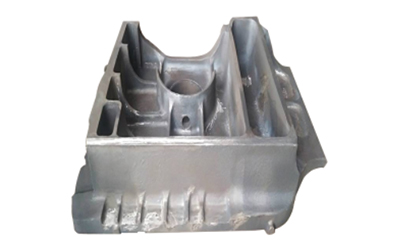Precision castings are complex parts manufactured through precision casting processes, characterized by high precision, diverse material selection, good sealing performance, and excellent mechanical properties. They have extensive applications in fields such as aerospace, automotive, and mechanical manufacturing. In the future, with the continuous advancement of technology, the manufacturing process and performance of precision castings will be further improved, bringing more opportunities and challenges for the development of various industries.
Material selection is a crucial step in the manufacturing process of precision castings. The selection of materials will directly affect the performance, service life, and cost of the product. The materials commonly used in precision castings include aluminum alloy, copper alloy, and steel, and suitable materials are selected according to different application scenarios and requirements. Designing molds is the key to manufacturing precision castings. The design of the mold needs to consider the requirements of the product's shape, size, and surface quality, as well as the impact of factors such as thermal expansion and contraction on the mold. Reasonable mold design can improve product quality and production efficiency.
Can Dalian precision castings meet special shape and size requirements?
Precision castings can produce various special shaped parts. Traditional casting techniques often only produce parts with simple shapes, while for parts with complex shapes, difficulties may be encountered. However, precision casting technology uses high-precision molds, which can completely cast complex shaped parts. The design and manufacturing accuracy of the mold is high, which can accurately replicate the shape of the product, ensuring the consistency of the geometric dimensions and surface quality of the product. Therefore, precision castings can meet the requirements of various special shapes, whether it is complex curve shapes or unique structural shapes, which can be achieved through precision casting technology.
Precision castings can also meet special size requirements. Casting technology is usually used to produce large and medium-sized parts, as traditional casting processes often cannot meet the requirements of high-precision dimensions. However, precision casting technology can achieve high-precision control of dimensions by strictly controlling casting process parameters and using advanced casting equipment and processes. Meanwhile, precision casting technology can also optimize the structure and shape of castings, reduce the impact of dimensional errors, and improve the accuracy of products. Therefore, precision castings can meet various special size requirements, whether it is small-sized micro parts or large-sized industrial parts, which can be achieved through precision casting technology.
In addition to meeting special shape and size requirements, precision castings also have other advantages. The material selection range for precision castings is wide, and suitable materials can be selected to meet the performance requirements of the parts, such as wear resistance, corrosion resistance, etc. Secondly, precision castings have high production efficiency and can achieve automated production, improving production efficiency and product quality stability. Again, precision castings have high consistency and reliability, enabling mass production and traceability management of products.

